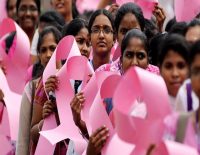1 in 3 urban population battle metabolic syndrome: study

Over one third of urban population in India suffer with metabolic syndrome – a condition disproportionately affecting women, as per a study. This complex web of high blood sugar, unhealthy cholesterol, high blood pressure, and excess belly fat significantly increases the risk of both type-2 diabetes and cardiovascular disease.
Emphasizing the importance of personalized care and the transformative impact of digital twins, Dr. Ashok Kumar Jhingan, eminent endocrinologist and Senior Director of the Department of Endocrinology at BLK Max Super Speciality Hospital, New Delhi, explains, “Metabolic disruptions lead to various diseases, including type-2 diabetes, hypertension, and other medical conditions. The traditional doctor-patient relationship often falls short in providing the level of personalized care required for complex chronic conditions. Patients generally avoid regular monitoring of blood sugar, blood pressure, and lipid profiles, which leads to increased HbA1c and high blood pressure, resulting in complications of diabetes. Regular counselling about monitoring, dietary habits, and daily routines can lead to better management of diabetes. However, all of this must be affordable and patient-friendly to benefit a large number of patients.”
The Whole Body Digital Twin is a dynamic digital representation of an individual’s unique metabolism, constructed from over 3000 data points gathered from non-invasive wearable sensors, blood parameters, and self-reported preferences. Combined with Machine Learning models, it identifies cause-and-effect relationships, predicts future metabolic states, and recommends personalised actions to enhance health.
Dr. Ashok Kumar Jhingan further adds, “Digital twins address this gap by offering patients continuous access to data and insights about their bodies. User-centric personalisation enables tailored health learning and tracking. This empowerment enables patients to actively engage in their healthcare journey and work collaboratively with their doctors to attain optimal health.”
Dr. Dr Shambo Samrat Samajdar, Clinical Pharmacology, FIPS Fellow Diabetes India, PG Dip Endocrinology & Diabetes, Dip Allergy Asthma and Immunology, says, “The alarming prevalence of metabolic syndrome in urban India, particularly among women, highlights the need for preventative measures. Digital twins offer a game-changer. By providing early detection of risk factors and personalized health insights, this technology can empower individuals to manage their condition more effectively, improving both their physical and mental well-being, equipping them to make proactive lifestyle changes. This can significantly reduce the burden of chronic diseases like diabetes and heart disease, not just for individuals but also for the healthcare system as a whole.”







